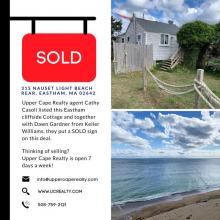Letter to the editor: Marion Open Spaces Acquisition Committee land deal’s substantive problem
A partnership or joint venture appears to have developed among conservation groups and individuals including The Marion Open Spaces Acquisition Committee and the Sippican Lands Trust along with individuals aligned together to bring 43 acres of open land under conservation protection and controlled by the SLT.
The linchpin is control of 33.7 acres of property that the owner has been trying to sell with a taxed assessed value of $406,000 and annual taxes of approximately $4,000. This property is ideally situated with nearby SLT land adjacent to Route 6 near the wastewater treatment plant.
Although the selling price has not been disclosed, a target selling price of $500,000 is a reasonable assumption based on the assessed tax valuation.
MOSAC warrant article five requests Fall Town Meeting to approve the town’s purchase of a conservation recreation easement for $250,000 on this property to be controlled by the SLT.
MOSAC has made no disclosure how the town’s purchase of such an easement fits into the conservation project structure, its economic substance or public need for this deal. There is no independent appraisal of the easement’s valuation.
The SLT is a special interest private land trust with a public purpose charter to protect land for conservation. There is no reason for the town to buy a conservation easement on land to be controlled by a land trust. The town purchase of the easement leaves a wide-open back door for SLT to purchase the title to control the land for $250,000 using affiliates, deal structures and interrelated party transactions to complete its purchase now or in the future.
The $250,000 the town pays for the conservation easement added to the $250,000 SLT pays for property title control nets the seller’s $500,000 target sales price. Otherwise, neither party would have paid the seller’s target price with an independent stand-alone deal. Substantively, the town’s purchase of the easement is simply using taxpayer money to help finance SLT’s land deal.
This deal is no different from the town contributing to the United Way to fund charitable projects such as the girl scouts.
With tax audits, the IRS looks for taxpayers using deal structures that look legitimate but lack economic substance. It’s the economic substance of the transaction that’s important not its structure. Follow the money.
The economic substantive problem for this deal is the Commonwealth’s Constitutional Anti Aid Amendments. Municipalities are prohibited from making charitable contributions to fund special interest private projects.
Ted North
Marion














